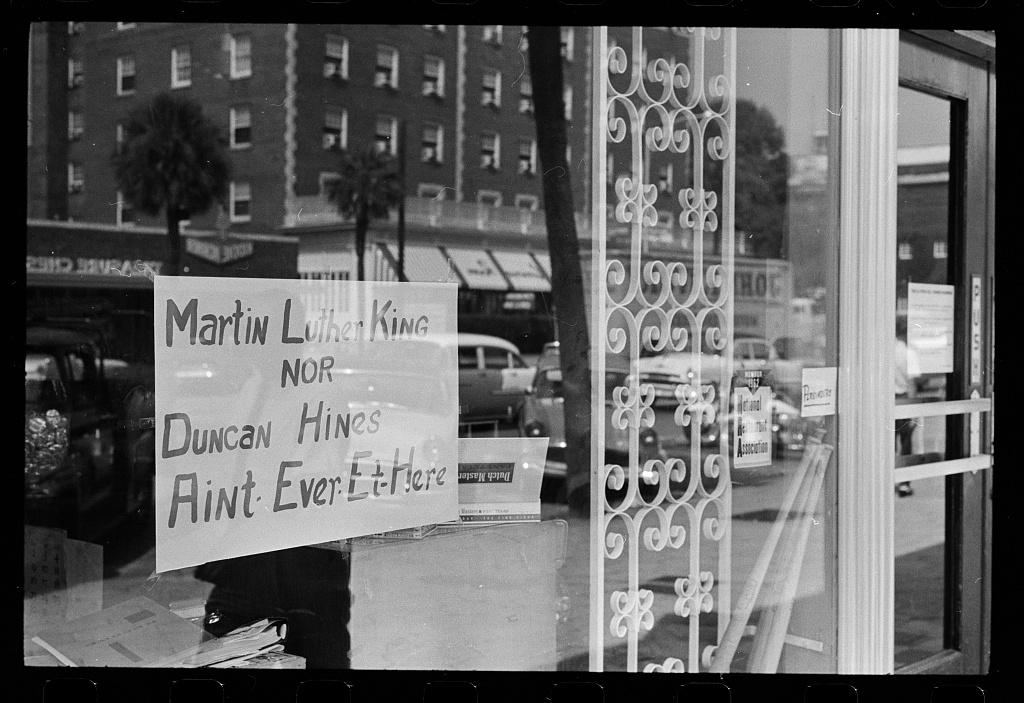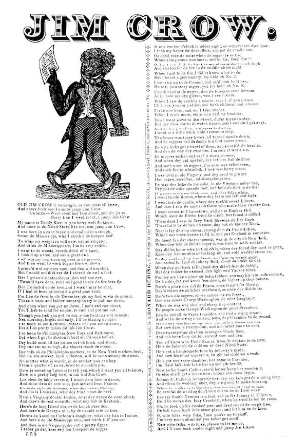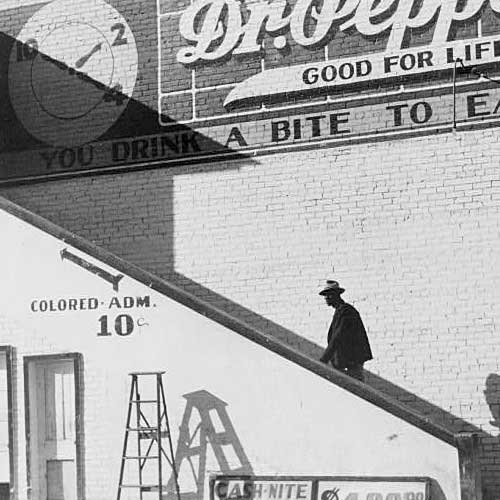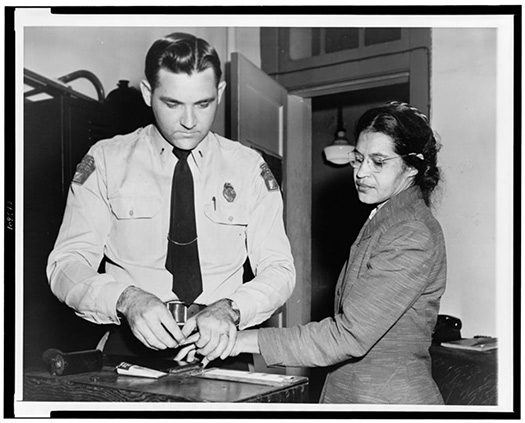Separate But Equal

Segregation in Albany- street scenes
Courtesy of the Library of Congress
Jim Crow Laws were a collection of statutes that legalized segregation beginning as early as the 1860s. These laws, extended into many fields, including education, prohibiting black people from doing certain things. Due to the influence these laws had, in 1896, the Supreme Court ruled in Plessy v. Ferguson that racially segregated public facilities were legal. With this, the doctrine known as "separate but equal" was formed. Separated by color, but provided equal opportunities.

Jim Crow Poster
Courtesy of the Library of Congress

Negro going in colored entrance of movie house
Courtesy of Library of Congress
In the 1950s, the National Association for the Advancement of Colored People (NAACP) was attempting to diminish this law. They had several lawsuits on the behalf of plaintiffs in multiple states. The most famous case among these lawsuits was the Brown case; Oliver Brown filed a class-action lawsuit against the education board in Topeka, as his daughter, Linda Brown, was denied acceptance to all-white Sumner Elementary school. She was instead forced to attend Monroe Elementary school, which was inconveniently far from home. Brown further argued that segregation was a violation of the 14th Amendment, as it suppressed the privilege of black citizens. The U.S District Court in Kansas agreed, yet continued to obtain the idea of "separate but equal." However, the "equal" part of the doctrine wasn't always applied.

Mrs. Rosa Parks Fingerprinted in Montgomery, Alabama
Courtesy of the Library of Congress
While the circumstances were similar between African-American and Caucasian people, the qualities were unbalanced. An example of this is the bus notion. Riders were separated, with white people having access to the front of the bus. Sitting toward the front made entering and exiting easier. Conversely, black people were forced to the back of the bus. At the root, this is not equal. For it to be deemed so, all seats would be available to all passengers. Rosa Parks sat where she pleased after a long day at work, but was punished for it. Occurrences such as this strengthened the claims of the Brown case.
"No State shall make or enforce any law which shall abridge the privileges or immunities of citizens of the United States..."
~14th Amendment to the U.S Constitution, Section 1